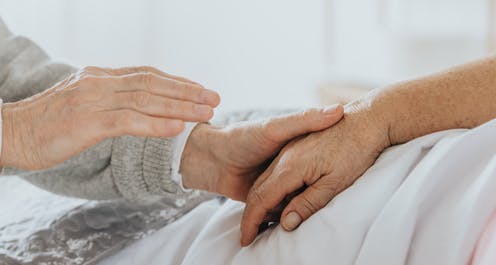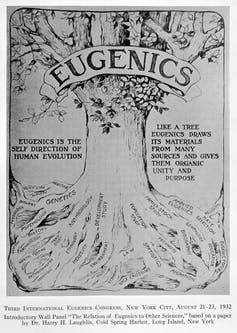
As Canadians head to the polls next week, I reflect on what “big apology” a future government will one day issue.
Past transgressions have made governments increasingly adept at belatedly saying sorry. Even kind and polite Canada is not immune. From lamenting wartime internments and removal of voting rights, to turning away Sikh refugees — some to their deaths — on the Komagata Maru, to residential school atrocities against Indigenous children, national apologies have become opportunities for press conferences of contrition.
In the hope of foregoing future photo opportunities, perhaps we should consider what the next big apology might be, and avoid needing to make it.
Reconsidering wide expansion of medical assistance in dying (MAiD) may be one such opportunity. In March 2021, the Liberal government, with the support of the Bloc Québécois, passed new MAiD legislation removing previous safeguards (notably, both left and right were united against this, with NDP, Conservatives and Greens voting against). It is one of the most liberal facilitated suicide laws in the world.
Avoidable wrongs
Consider past justifications for one of the most notorious policies discriminating against women with mental illness and Indigenous women: Forced sterilization. Forced sterilizations were justified by a combination of devaluing certain lives and rationalizing that we were actually “doing the right thing”, and occurred across the world for decades. The policy officially continued in Canada until the mid 1970s, with women continuing to report the practice even into the late 2010s. While clearly coercive, society comforted itself by rationalizing that these women were “mentally defective” and “unfit,” that they would be “better off” not having children and that society was somehow pursuing a greater good.

Wellcome Collection, CC BY
Ableist assumptions, valuing some human lives more than others, have been manifest in societal policies for centuries. In September 1921, at the Second International Eugenics Congress, Alexander Graham Bell and prominent academics of the day provided expert reassurances of enlightened beneficence with the tag line, “Eugenics is the self direction of human evolution,” promising a better future for all and setting the stage for justifying decades of mistreatment of the mentally ill and marginalized.
MAiD and marginalization
Now consider the arguments made in favour of providing MAiD for mental illness: That MAiD is about respecting autonomy and providing compassionate relief from suffering. That MAiD is about dignity and valuing what people want. And perhaps most importantly, that MAiD is not the same as the tragic suicides society aims to prevent.
When MAiD is provided in near end-of-life conditions, when we know someone will not improve and faces enduring suffering, the above arguments are valid and supported by evidence. In these situations, we find that white, wealthy and privileged people tend to seek MAiD.
All the above arguments become fantasies once MAiD is expanded beyond near end-of-life conditions to the non-dying with disabilities and mental illness, as the Trudeau government intends, with even more MAiD restrictions lifting in 2023.
In these situations, evidence shows that populations marginalized by poverty, loneliness and unresolved life suffering seek MAiD, with twice as many women as men being euthanized for psychiatric disorders. This is the same ratio of women to men who attempt suicide when mentally ill but who, absent the 100 per cent lethal means of MAiD, survive the attempt and do not try again.
Yet, despite lack of evidence that MAiD can responsibly be provided for mental illness, MAiD expansionists blindly forward the same arguments to push broader access to MAiD with fewer safeguards. This benefits the white, wealthy and privileged to have even more autonomy, while sacrificing our most vulnerable, those marginalized by sexism, racism, ageism and ableism, to entirely avoidable premature deaths.

THE CANADIAN PRESS/Sean Kilpatrick
Ironically, it sacrifices them to these deaths under the pretence of autonomy, disregarding how internalized oppression would force our most vulnerable to make an impossible, and unfair, choice to “die well” because society never gave them a chance to live well. Evidence shows that these are often ambivalent suicidal wishes in people who could have gotten better and are seeking escape from social disenfranchisement, not from inevitable medical suffering. These people would want to live if given a true choice of life with dignity instead of the enticement of a painless death to escape a painful life.
Read more:
Medical assistance in dying for mental illness ignores safeguards for vulnerable people
From eugenics to forced sterilizations, public figures and ideologues of the day ignored cautions of dissent and assured society it was “doing the right thing,” allowing us to overlook the reality that the most vulnerable amongst us were being discarded.
Today, ignoring the evidence, prominent politicians, senators and, sadly, some of my psychiatrist colleagues are similarly reassuring Canadians that our wide MAiD expansion is enlightened and “safe.” It may be safe for the privileged who already live well and will have more autonomy to die better. For others, the non-dying disabled and marginalized whose social suffering will be solved with death, it will eventually be called something else.
If we knowingly ignore this reality, we can anticipate the inevitable press conference with a future Canadian prime minister issuing a heartfelt apology for our current sins.
![]()
Karandeep Sonu Gaind acted as an expert witness and consultant for the crown in the Truchon and Lamb cases, sat on the Council of Canadian Academies Expert Panel on MAiD and Mental Illness, is physician chair of the Humber River Hospital MAiD Team, is a past president of the Canadian Psychiatric Association (CPA) and chaired the time-limited CPA Task Force on MAiD.























